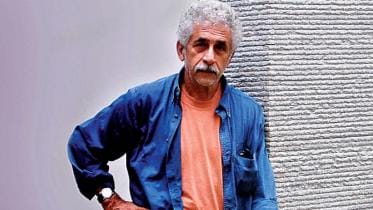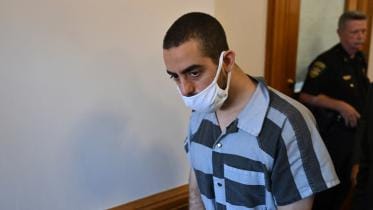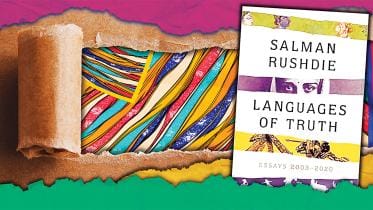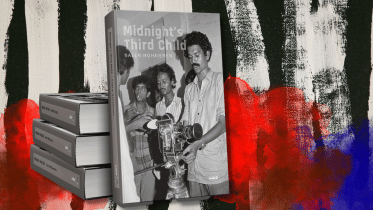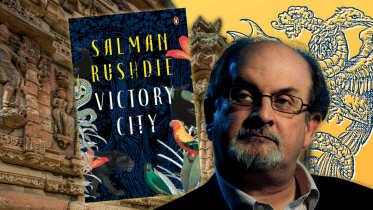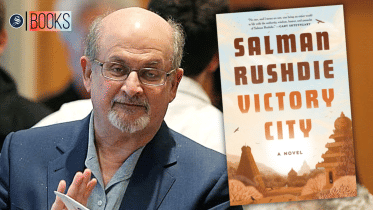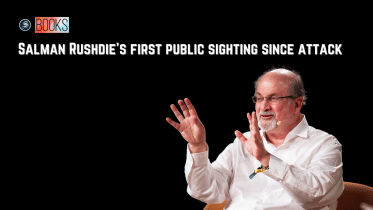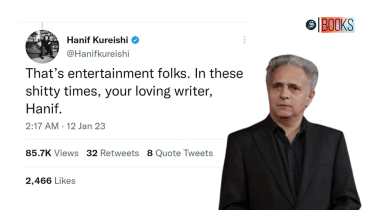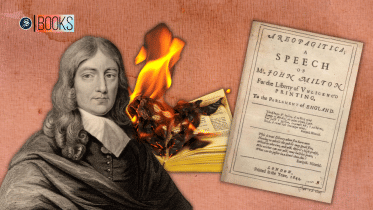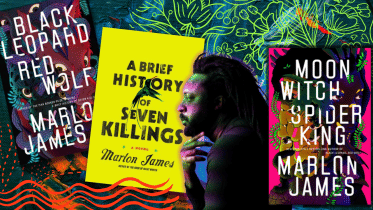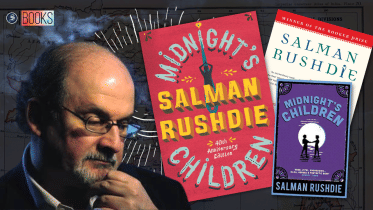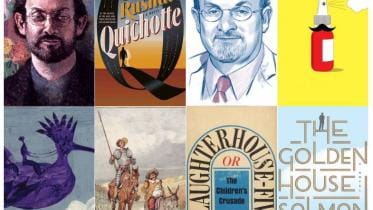Salman Rushdie
Naseeruddin Shah to embody Salman Rushdie in ‘Twenty Nine Seconds’
“Twenty Nine Seconds” unpacks the harrowing 2022 incident in which Rushdie was attacked onstage in New York, losing vision in one eye and nearly losing his life. It also traces the aftermath — psychological, physical, and artistic — that followed. Sen’s production brings Rushdie’s voice to life through Shah’s commanding presence, marking their first collaboration in theatre. Notably, the two have previously worked together on screen.
28 May 2025, 11:10 AM
Man who stabbed novelist Salman Rushdie guilty of attempted murder
Hadi Matar will be sentenced on April 23, and faces up to 25 years in prison
22 February 2025, 03:01 AM
Attempted murder trial of Rushdie assailant to begin
In August 2022 Rushdie, now 77, lost vision in his right eye after the attack by a knife-wielding assailant
4 February 2025, 03:07 AM
Rising from the ashes
The literary world was shaken on August 12, 2022, when the news of Salman Rushdie being stabbed on stage in upstate New York started to pour in. Ironically, he was all set to talk about his involvement in a project to create a refuge in the USA for those writers who are not safe in their country.
12 June 2024, 18:00 PM
9 most anticipated new releases of 2024
In 'Knife', Rushdie pens in delicate detail the unforgettable events of August 12, 2022, giving out to the world his verdict on the act of violence
6 February 2024, 14:11 PM
A paean to storytelling
Following the trails of Imaginary Homelands (Penguin Books, 1992) and Step Across The Line (Modern Library, 2003), comprising essays written and lectures given by Salman Rushdie between 2003-2020, Languages of Truth is Rushdie’s third collection of nonfiction works and is as a delectable read as its predecessors if not more.
13 September 2023, 18:00 PM
Professing criticism: On Naeem Mohaiemen's new book of essays
Although the book is written in English, he has plenty of doubt to dispense about the language, its usefulness, acceptance, and communicability when it comes to writing and creating art in Bangladesh.
8 June 2023, 06:59 AM
Like father, unlike son: Martin Amis’s place in literature
Perhaps Martin Amis’s works do not grab me for the most part because it veers too far away from the humanism of, say, Saul Bellow—a writer Martin greatly admires and has written about extensively.
3 June 2023, 07:39 AM
“It’s nice to be back—as opposed to not being back, which was also a possibility”: Salman Rushdie
Rushdie’s surprise appearance was the highlight of an eventful month for PEN, the literary and free expression organisation that has been in the middle—by choice and otherwise—of various conflicts.
22 May 2023, 13:00 PM
Rushdie, and the victory of words
The story begins with an unnamed battle where all men of the tiny principality of Kampili die. Their wives commit mass suicide by lighting a massive bonfire on the coast of the river Pampa and immolating themselves in the pyre.
22 February 2023, 19:35 PM
Salman Rushdie releases new novel six months after stabbing attack
"All I've seen is his idiotic interview in the New York Post," said Rushdie about his attacker. "Which only an idiot would do."
8 February 2023, 10:30 AM
'I sit down to write, and nothing happens': Salman Rushdie
"I write, but it’s a combination of blankness and junk", Salman Rushdie tells New Yorker's David Remnick.
6 February 2023, 16:20 PM
Hanif Kureishi's Twitter diary and why he couldn't make it to Bangladesh
"I realised I had to start again as a person and a writer. I had to become a comic writer, a serious writer, a writer who could integrate the madness and most interesting elements on the same page."
16 January 2023, 06:09 AM
On free speech and Milton’s 'Areopagitica'
Milton shows how the erroneous use of censorship laws have hindered progress even in the quest for scientific truth.
9 December 2022, 14:01 PM
The dangerous game of Marlon James—Can genre fiction be great literature?
James seems to be saying to the establishment, to the same generous folks who once gave him the Booker and propelled him to the stratosphere: Go ahead and say this is not literature, I dare you.
31 August 2022, 18:00 PM
How Salman Rushdie’s ‘Midnight’s Children’ changed my life
Metaphors have never made more sense to me than when these two swapped but intertwined lives personified India and Pakistan, the two newborn countries, whose births were marked by blood, pain and trauma.
14 August 2022, 13:15 PM
Attack fans interest in Rushdie works, mainly “Satanic Verses”
The stunning knife attack on author Salman Rushdie has fanned interest in his works - above all, The Satanic Verses, which left him living for years under a looming death threat.
14 August 2022, 05:48 AM
Salman Rushdie stabbing: Hadi Matar charged with attempted murder
Hadi Matar, the suspect in the stabbing of author Salman Rushdie at an event in New York state, has been charged with attempted murder and is being held without bond, prosecutors in Chautauqua County said on Saturday.
13 August 2022, 18:02 PM
Who is Salman Rushdie?
With a literary career of five decades, Sir Salman Rushdie has been no stranger to death threats due to his controversial work. Born two months before the Indian independence from Britain, Salman Rushdie took his first gaze in Bombay — now known as Mumbai. The controversial writer went on to win the illustrious Booker Prize in 1981 for his book, Midnight’s Children; the novelist became one of the most celebrated and successful British authors of all time. However, with his fourth novel, The Satanic Verses, published in 1988, the writer managed to cause international turmoil by hurting Islamic sentiments. Thus, began his controversial life.
13 August 2022, 09:04 AM
Salman Rushdie attacked on stage during event in New York state
British author Salman Rushdie, whose writings made him the target of Iranian death threats that forced him into hiding, was attacked on stage Friday in western New York state.
12 August 2022, 16:08 PM



